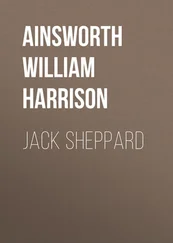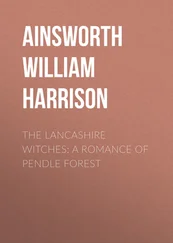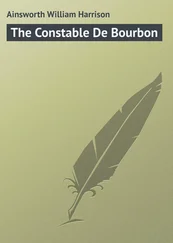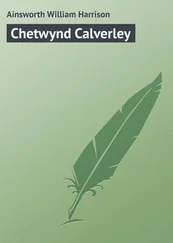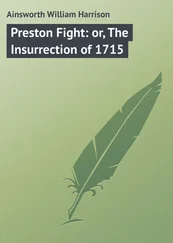W. Ainsworth - Rookwood
Здесь есть возможность читать онлайн «W. Ainsworth - Rookwood» весь текст электронной книги совершенно бесплатно (целиком полную версию без сокращений). В некоторых случаях можно слушать аудио, скачать через торрент в формате fb2 и присутствует краткое содержание. Жанр: Старинная литература, на русском языке. Описание произведения, (предисловие) а так же отзывы посетителей доступны на портале библиотеки ЛибКат.
- Название:Rookwood
- Автор:
- Жанр:
- Год:неизвестен
- ISBN:нет данных
- Рейтинг книги:4 / 5. Голосов: 1
-
Избранное:Добавить в избранное
- Отзывы:
-
Ваша оценка:
- 80
- 1
- 2
- 3
- 4
- 5
Rookwood: краткое содержание, описание и аннотация
Предлагаем к чтению аннотацию, описание, краткое содержание или предисловие (зависит от того, что написал сам автор книги «Rookwood»). Если вы не нашли необходимую информацию о книге — напишите в комментариях, мы постараемся отыскать её.
Rookwood — читать онлайн бесплатно полную книгу (весь текст) целиком
Ниже представлен текст книги, разбитый по страницам. Система сохранения места последней прочитанной страницы, позволяет с удобством читать онлайн бесплатно книгу «Rookwood», без необходимости каждый раз заново искать на чём Вы остановились. Поставьте закладку, и сможете в любой момент перейти на страницу, на которой закончили чтение.
Интервал:
Закладка:
Her song died away. Her hand was needed to brush off the tears that were gathering in her large dark eyes. At once her attitude was changed. The hare could not have started more suddenly from her form. She heard accents well known concluding the melody.
It was her lover's voice. She caught the sound at once, and, starting, as the roe would arouse herself at the hunter's approach, bounded down the crag, and ere he had finished the refrain, was by his side.
Flinging the bridle to Turpin, Luke sprang to her, and caught her in his arms. Disengaging herself from his ardent embrace, Sybil drew back, abashed at the sight of the highwayman.
"Heed him not," said Luke; "it is a friend."
"He is welcome here then," replied Sybil. "But where have you tarried so long, dear Luke?" continued she, as they walked to a little distance from the highwayman. "What hath detained you? The hours have passed wearily since you departed. You bring good news?"
"Good news, my girl; so good, that I falter even in the telling of it. You shall know all anon. And see, our friend yonder grows impatient. Are there any stirring? We must bestow a meal upon him, and that forthwith: he is one of those who brook not much delay."
"I came not to spoil a love meeting," said Turpin, who had good-humouredly witnessed the scene; "but, in sober seriousness, if there is a stray capon to be met with in the land of Egypt, I shall be glad to make his acquaintance. Methinks I scent a stew afar off."
"Follow me," said Sybil; "your wants shall be supplied."
"Stay," said Luke; "there is one other of our party, whose coming we must abide."
"He is here," said Sybil, observing the sexton at a distance. "Who is that old man?"
"My grandsire, Peter Bradley."
"Is that Peter Bradley?" asked Sybil.
"Ay, you may well ask whether that old dried-up otomy, who ought to grin in a glass case for folks to stare at, be kith and kin of such a bang-up cove as your fancy man, Luke," said Turpin, laughing—"but i'faith he is."
"Though he is your grandsire, Luke," said Sybil, "I like him not. His glance resembles that of the Evil Eye."
And, in fact, the look which Peter fixed upon her was such as the rattlesnake casts upon its victim, and Sybil felt like a poor fluttering bird under the fascination of that venomous reptile. She could not remove her eyes from his, though she trembled as she gazed. We have said that Peter's orbs were like those of the toad. Age had not dimmed their brilliancy. In his harsh features you could only read bitter scorn or withering hate; but in his eyes resided a magnetic influence of attraction or repulsion. Sybil underwent the former feeling in a disagreeable degree. She was drawn to him as by the motion of a whirlpool, and involuntarily clung to her lover.
"It is the Evil Eye, dear Luke."
"Tut, tut, dear Sybil; I tell you it is my grandsire."
"The girl says rightly, however," rejoined Turpin; "Peter has a confounded ugly look about the ogles, and stares enough to put a modest wench out of countenance. Come, come, my old earth-worm, crawl along, we have waited for you long enough. Is this the first time you have seen a pretty lass, eh?"
"It is the first time I have seen one so beautiful," said Peter; "and I crave her pardon if my freedom has offended her. I wonder not at your enchantment, grandson Luke, now I behold the object of it. But there is one piece of counsel I would give to this fair maid. The next time she trusts you from her sight, I would advise her to await you at the hill-top, otherwise the chances are shrewdly against your reaching the ground with neck unbroken."
There was something, notwithstanding the satirical manner in which Peter delivered this speech, calculated to make a more favourable impression upon Sybil than his previous conduct had inspired her with; and, having ascertained from Luke to what his speech referred, she extended her hand to him, yet not without a shudder, as it was enclosed in his skinny grasp. It was like the fingers of Venus in the grasp of a skeleton.
"This is a little hand," said Peter, "and I have some skill myself in palmistry. Shall I peruse its lines?"
"Not now, in the devil's name!" said Turpin, stamping impatiently. "We shall have Old Ruffin himself amongst us presently, if Peter Bradley grows gallant."
Leading their horses, the party took their way through the trees. A few minutes' walking brought them in sight of the gipsy encampment, the spot selected for which might be termed the Eden of the valley. It was a small green plain, smooth as a well-shorn lawn, kept ever verdant (save in such places as the frequent fires had scorched its surface) by the flowing stream that rushed past it, and surrounded by an amphitheatre of wooded hills. Here might be seen the canvas tent with its patches of varied colouring; the rude-fashioned hut of primitive construction; the kettle slung
Between two poles, upon a stick transverse
the tethered beasts of burden, the horses, asses, dogs, carts, caravans, wains, blocks, and other movables and immovables belonging to the wandering tribe. Glimmering through the trees, at the extremity of the plain, appeared the ivy-mantled walls of Davenham Priory. Though much had gone to decay, enough remained to recall the pristine state of this once majestic pile, and the long, though broken line of Saxon arches, that still marked the cloister wall; the piers that yet supported the dormitory; the enormous horse-shoe arch that spanned the court; and, above all, the great marigold, or circular window, which terminated the chapel, and which, though now despoiled of its painted honours, retained, like the skeleton leaf, its fibrous intricacies entire—all eloquently spoke of the glories of the past, while they awakened reverence and admiration for the still-enduring beauty of the present.
Towards these ruins Sybil conducted the party.
"Do you dwell therein?" asked Peter, pointing towards the priory.
"That is my dwelling," said Sybil.
"It is one I should covet more than a modern mansion," returned the sexton.
"I love those old walls better than any house that was ever fashioned," replied Sybil.
As they entered the Prior's Close, as it was called, several swarthy figures made their appearance from the tents. Many a greeting was bestowed upon Luke, in the wild jargon of the tribe. At length an uncouth dwarfish figure, with a shock head of black hair, hopped towards them. He seemed to acknowledge Luke as his master.
"What ho! Grasshopper," said Luke, "take these horses, and see that they lack neither dressing nor provender."
"And hark ye, Grasshopper," added Turpin, "I give you a special charge about this mare. Neither dress nor feed her till I see both done myself. Just walk her for ten minutes, and if you have a glass of ale in the place, let her sip it."
"Your bidding shall be done," chirped the human insect, as he fluttered away with his charges.
A motley assemblage of tawny-skinned varlets, dark-eyed women and children, whose dusky limbs betrayed their lineage, in strange costume, and of wild deportment, checked the path, muttering welcome upon welcome into the ear of Luke as he passed. As it was evident he was in no mood for converse, Sybil, who seemed to exercise considerable authority over the crew, with a word dispersed them, and they herded back to their respective habitations.
A low door admitted Luke and his companions into what had once been the garden, in which some old moss-encrusted apple-and walnut-trees were still standing, bearing a look of antiquity almost as venerable as that of the adjoining fabric.
Another open door gave them entrance to a spacious chamber, formerly the eating-room, or refectory of the holy brotherhood; and a goodly room it had been, though now its slender lanceolated windows were stuffed with hay, to keep out the air. Large holes told where huge oaken rafters had once crossed the roof, and a yawning aperture marked the place where a cheering fire had formerly blazed. As regarded this latter spot, the good old custom was not, even now, totally abrogated. An iron plate, covered with crackling wood, sustained a ponderous black caldron, the rich steam from which gratefully affected the olfactory organs of the highwayman.
Читать дальшеИнтервал:
Закладка:
Похожие книги на «Rookwood»
Представляем Вашему вниманию похожие книги на «Rookwood» списком для выбора. Мы отобрали схожую по названию и смыслу литературу в надежде предоставить читателям больше вариантов отыскать новые, интересные, ещё непрочитанные произведения.
Обсуждение, отзывы о книге «Rookwood» и просто собственные мнения читателей. Оставьте ваши комментарии, напишите, что Вы думаете о произведении, его смысле или главных героях. Укажите что конкретно понравилось, а что нет, и почему Вы так считаете.



